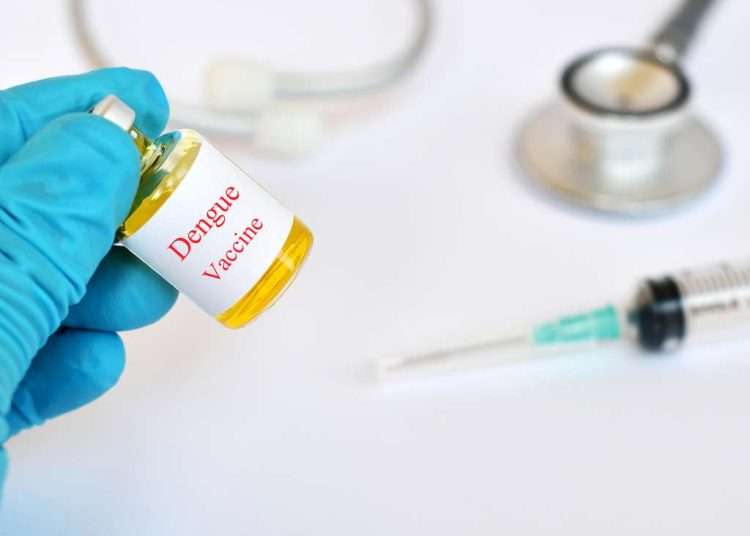Scientists from Cuba’s Center for Genetic Engineering and Biotechnology (CIGB) began preclinical trials with two formulations of a dengue vaccine candidate.
Through its Twitter account, the institution explained that the future immunogen is in the research-development stage, with a view to determining which variant will be the one that will be taken to clinical trials, according to a report by Prensa Latina (PL) news agency.
El #candidato #vacunal contra el #dengue se encuentra en etapa de investigación-desarrollo. Los científicos están iniciando los estudios preclínicos, donde están probando 2 formulaciones diferentes, con vistas a determinar cuál será la que se llevará a los estudios clínicos. pic.twitter.com/OIkrUJR8Ca
— CIGBCuba (@CIGBCuba) April 3, 2023
The drug that is being developed in Cuba has a safe technological platform and is based on recombinant proteins, the CIGB pointed out.
It is a tetravalent candidate, based on proteins from the four dengue viruses that are currently being evaluated.
CIGB authorities and researchers assured that if the level of infection by the dengue virus ― the viral load ― is lowered, severity is avoided, even the symptoms, whether subclinical or light.
Obtaining the vaccine is a complex process, because dengue has four serotypes and it is necessary to immunize against each one of them at the same time for the product to be effective, the source specified.
It also transpired that a new rapid diagnosis system for dengue should be available during 2023, in which specialists from the Immunoassay Center are working.
According to PL, the president of the Business Group of the Biotechnological and Pharmaceutical Industries, Eduardo Martínez, explained that this system would make it possible to determine, upon the appearance of the first symptoms, whether it is dengue or a second infection.
This will serve to apply a differentiated treatment to patients, and avoid the aggravation of the disease and death, said the official.
Dengue is transmitted through the bite of an infected Aedes aegypti mosquito and causes symptoms that can be mild or severe. They range from headaches, muscle and joint pain, and fever to erythema, according to medical literature.
In the world, 2.5 billion people live at risk of getting dengue and it is precisely during the summer and autumn months in which, due to the rains and the increase in temperatures, the mosquito infestation skyrockets, and with this the possibility of transmission of the disease increases.
Cuba, due to its condition as a tropical country, is prone to spikes in the incidence of this disease, which in its most serious cases can cause death.
In July 2022, the Ministry of Public Health (MINSAP) reported that, for the second year, Cuba had broken the record in 15 years for breeding sites for the dengue-transmitting mosquito, while in September the public health minister confirmed the transmission of the virus in the 15 provinces while warning about the high rates of infestation.
The most recent spikes in transmission have occurred in the midst of the deep economic crisis in the country, the increase in sanctions imposed by the United States, and the little effect of the measures adopted by the Cuban government to overcome the complex situation.
These circumstances have made it difficult to acquire the necessary supplies to carry out the necessary actions to mitigate risks, as well as access to medicines for the diagnosis and treatment of patients.










